|
Know what’s happening across Oceania—before your coffee’s cold.
OCEANIA MARKETS
|
|
|
|
|
|
|
|
ASX 200 and NZX 50 Data Provided By:

|
|
*Market index data sourced from official exchange publications and financial data aggregators. ASX and NZX data reflect end-of-day figures from the Australian and New Zealand stock exchanges respectively. SPX (South Pacific Stock Exchange) figures reflect the most recent published data. PNGX data reflects the performance of BSP Financial Group (All prices are in PNG Kina (PGK)), the exchange’s most traded company (No official index is currently published by PNGX).
|
|
REGIONAL NEWS
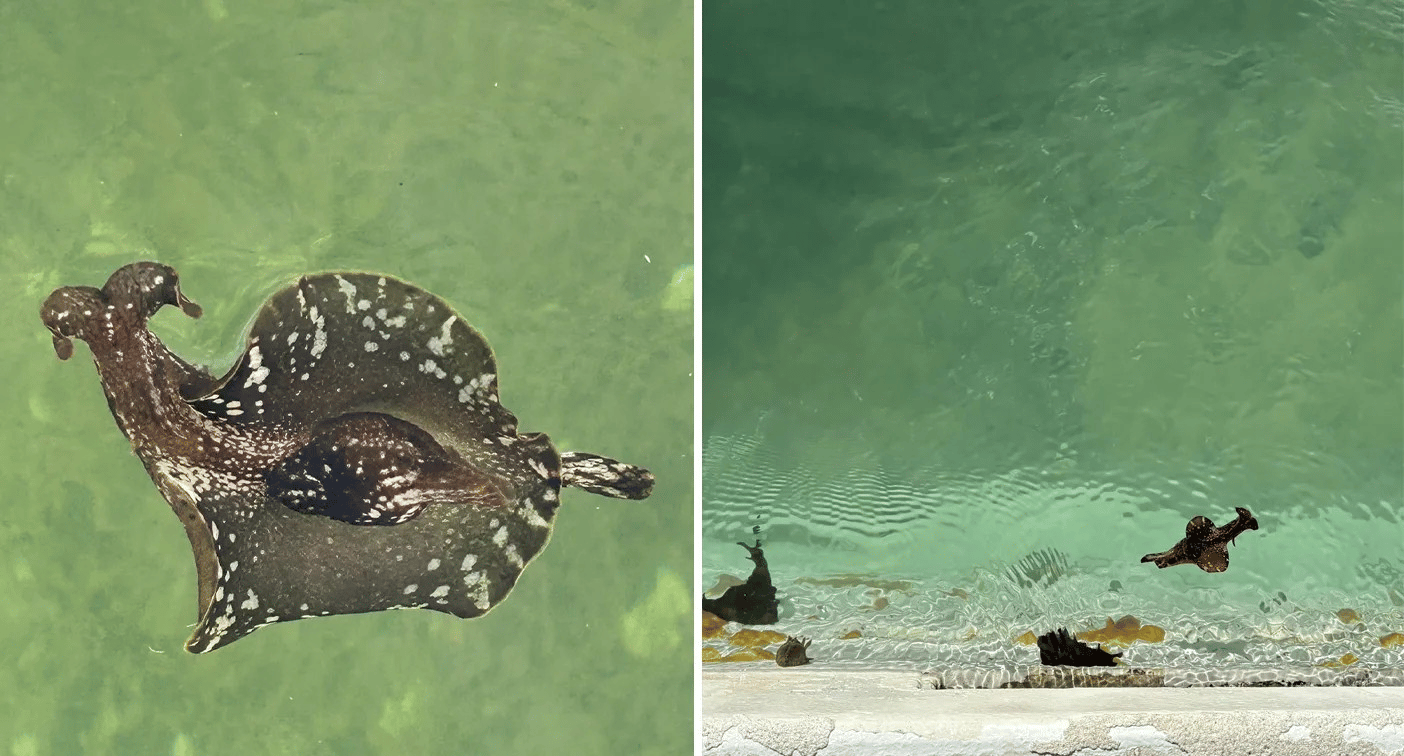
Merewether Baths in Newcastle temporarily closed after hundreds of toxic sea hares swarm the pool, posing risks to pets and prompting careful removal efforts. Photo Credit: City of Newcastle
Newcastle’s Merewether Baths Closed After Influx of Toxic Sea Hares
|
A popular ocean pool in Newcastle, New South Wales, has been temporarily closed after an extraordinary influx of “hundreds” of sea hares-large, soft-bodied marine mollusks-was discovered in the water. The City of Newcastle council shut down Merewether Baths, a beloved swimming spot, to protect both the unusual visitors and the public.
|
Unusual Marine Gathering
|
The mass congregation of sea hares, described as an “uncommon sight,” is believed to be linked to their annual spawning. Normally found in rock pools and seagrass beds, the sea hares have gathered in the pool to release their egg masses. Council representatives are working with marine specialists to manage the situation carefully, ensuring the safety of the creatures and their eggs.
|
Risks to Pets and Public
|
While sea hares are not typically dangerous to humans, they pose a significant toxicity risk to dogs. The mollusks feed on algae that can contain harmful compounds, making them potentially poisonous if ingested by pets. Local veterinarians warn that dogs can develop symptoms such as vomiting, drooling, tremors, and even seizures within hours of exposure. Pet owners are strongly advised to keep their animals away from the area until the pool is deemed safe.
|
Council Response and Next Steps
|
The council has announced that Merewether Baths will remain closed while preparations are made for the careful manual removal of the sea hares and their eggs. The cleaning process will be conducted with special attention to the survival of the eggs and the health of the marine ecosystem. The council also noted that while some sea hares may naturally leave with the tides, intervention is necessary to ensure the safety of both wildlife and the public.
|
About Sea Hares
|
The primary species identified is Aplysia juliana, though larger specimens of Aplysia sydneyensis have also been spotted. These creatures can grow up to 30 centimeters in length-larger than a bluebottle jellyfish-and are known to release a purple ink when disturbed. After spawning, sea hares typically die, which can result in further beaching events.
|
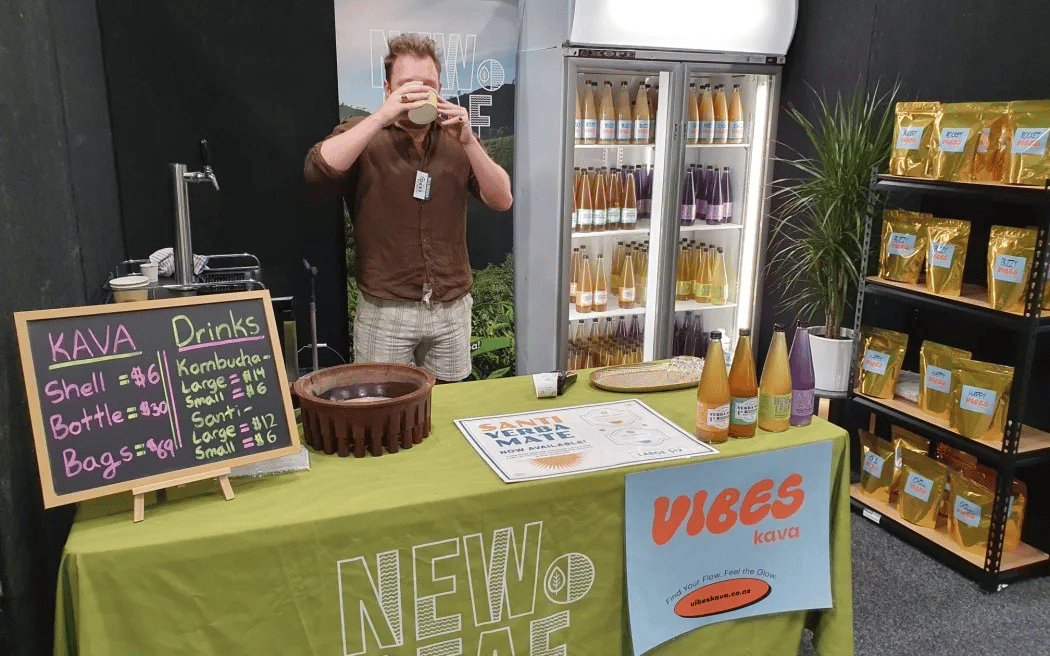
Auckland-based Vibes Kava faces cultural backlash as Pacific communities debate the commercialization and authenticity of traditional kava practices in a modern wellness market. Photo Credit: Brady Dyer / BradyDyer.com
Kava and Culture: Auckland Startup Navigates Criticism from Pacific Communities
|
A new kava business in Auckland, Vibes Kava, co-founded by Charles Byram, a Kiwi-American of Samoan descent, and Derek Hillen, originally from Canada, has sparked a heated cultural debate. Launched earlier this year, the business promotes kava as a modern, healthier alternative to alcohol and aims to create a community space centered around connection and wellness. However, critics argue that the business commodifies a sacred Pacific tradition, dilutes cultural authenticity, and risks cultural appropriation.
|
The Controversy: Tradition vs. Trend
|
Vibes Kava operates out of New Leaf Kombucha taproom in Grey Lynn and markets its product with trendy wellness branding, including bottled kava varieties labeled with effects such as "buzzy kava" and "chill kava." Their promotional video described their offering as "a modern take on a 3000-year-old tradition," which, after being shared by a prominent Pacific influencer on TikTok, drew over 95,000 views and sparked intense online debate.
|
|
Critics, including Pacific community members and academics, have questioned the ethical foundations of the business, asking whether proper consultation with Pacific communities occurred before commercializing kava. Some pointed to inconsistencies in the cultural elements presented by Vibes Kava, such as mixing Fijian kava practices with Samoan ceremonial items, which they say confuses and dilutes the tradition.
|
Expert Perspectives on Kava’s Cultural Significance
|
Fijian academic Dr. Apo Aporosa emphasized that kava is more than just a beverage-it's a cultural practice deeply embedded in ceremony, values, and social connection. He warned that repackaging kava into flavoured extracts and wellness products risks cultural appropriation and distorts its original purpose, which is to nurture relational spaces (vā) within Pacific societies.
|
|
Tongan academic Dr. Edmond Fehoko highlighted the complexity of the issue, acknowledging both cultural appreciation and appropriation. He noted that while kava holds a sacred place in Pacific cultures, its practice has evolved and globalized, with over 200 kava bars in the United States alone. Fehoko advocates for guiding and educating newcomers rather than gatekeeping, suggesting that kava can serve as a bridge for cultural exchange and community building.
|
Founders Respond to Criticism
|
Byram expressed the pain of facing backlash tied to his Samoan heritage and skin color. He stressed his genuine connection to his culture, having been raised in a Samoan household, and lamented the lack of direct dialogue before criticism surfaced online.
|
|
Both founders rejected accusations of profiting off the culture, stating that so far, all proceeds have been reinvested back to kava farmers in Vanuatu. They described their approach as one of learning and respect, involving visits to kava bars and interviews with farmers to understand the tradition's origins and community significance.
|
|
They acknowledged some valid points raised by critics and announced steps to deepen their cultural engagement, including joining the Pacific Business Hub and committing to more authentic representation. The founders also explained their initial moderation of online comments as a way to maintain respectful dialogue and prevent the conversation from escalating.
|
PRESENTED BY VONU STUDIOS
Oceanian Animated Videos For Kids: Pawpaw Kids TV
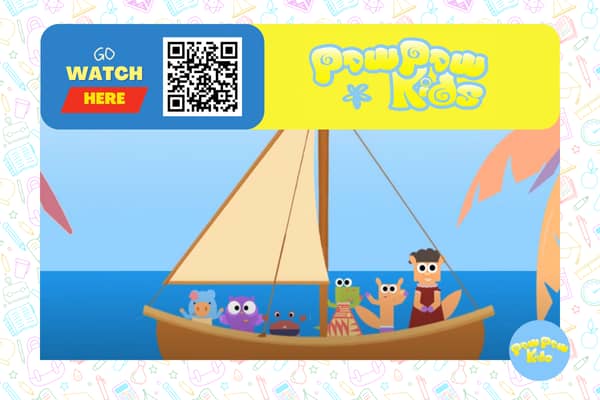
|
Pawpaw Kids TV is a YouTube channel dedicated to engaging and educational content for children, with a specific focus on the Oceanian region. The channel features the Pawpaw Explorers—Illy the Iguana, Mo the Mongoose, and other animated characters—who embark on adventures that introduce young viewers to local wildlife, ocean currents, and cultural stories.
|
Pawpaw Kids TV offers a Pacific blend of entertainment and learning, making it a valuable resource for children to explore the rich cultures and natural wonders of the Oceania region. Simply scan the QR code to visit the Pawpaw Kids TV YouTube channel or click this link:
YouTube Link: Pawpaw Kids TV
|
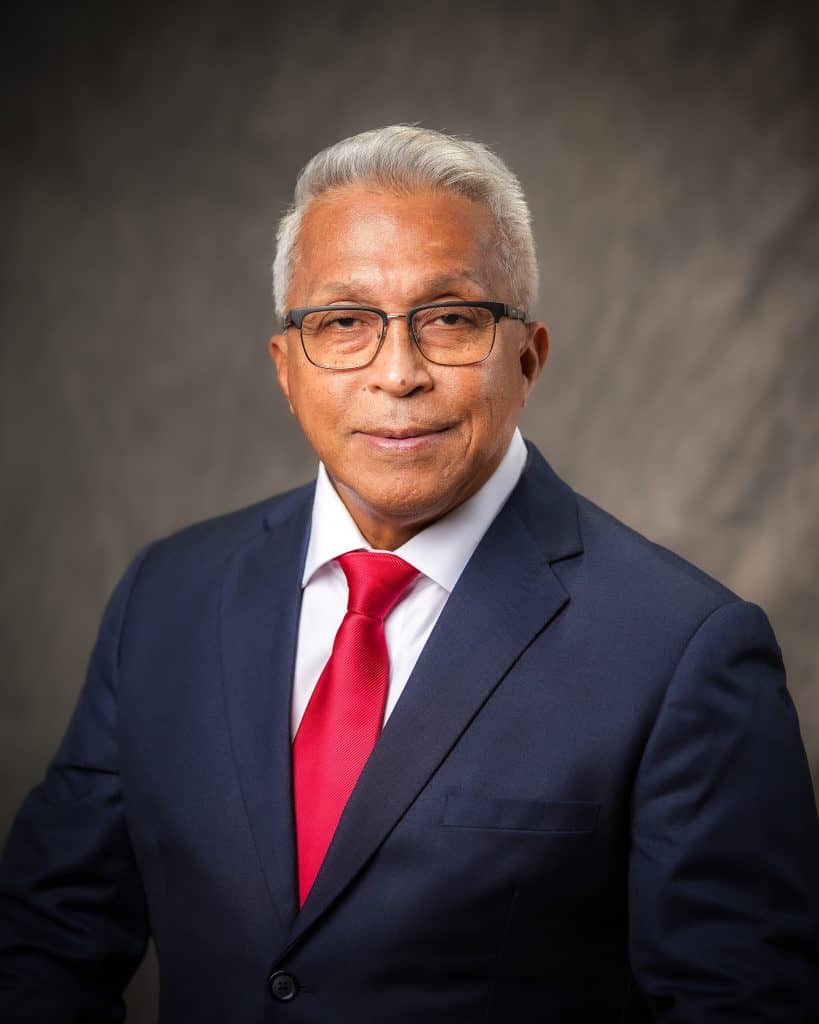
Senator Jesse Lujan calls on the U.S. State Department to establish a local passport issuance facility in Guam, aiming to ensure timely access to essential federal services and critical medical travel for island residents. Photo credit: The Guam Legislature
Guam Senator Urges U.S. State Department to Establish Local Passport Issuance Facility
|
Senator Jesse A. Lujan of the 38th Guam Legislature has formally requested the U.S. Department of State to establish a direct passport issuance facility on Guam, citing urgent humanitarian and logistical reasons.
|
|
In a letter dated May 12, addressed to Assistant Secretary of State for Consular Affairs John Armstrong, Lujan emphasized that Guam’s geographic isolation and healthcare challenges make the current system of expedited passport processing inadequate and sometimes life-threatening for residents.
|
|
Currently, Guam residents apply for passports through the Guam Passport Office located at the Department of Revenue and Taxation in Barrigada, which operates limited hours and accepts walk-ins without appointments.
|
|
Passport applications are processed but must be routed through regional centers outside Guam, often causing delays. While online renewal options have recently become available nationwide, routine and expedited processing times still range from weeks to months, which can be critical for urgent travel needs.
|
|
Lujan highlighted that many Guam residents require urgent medical treatment unavailable on the island, needing to travel to nearby countries such as Japan, South Korea, Taiwan, or the Philippines. These trips require valid U.S. passports, and delays in obtaining or renewing passports can prevent timely access to life-saving care.
|
|
“Our current system is failing our people and in too many cases, costing them their lives,” Lujan wrote. He argues that expediting passport applications is no longer sufficient and that Guam must be designated as a direct passport issuance site to ensure timely access to federal services.
|
A Call for Federal Parity
|
Lujan framed the request not as a special favor but as a matter of equal treatment and citizenship rights. He stressed that geographic distance should not translate into diminished access to essential federal services. To facilitate implementation, Lujan offered to assist the Department of State in identifying staffing, locations, and logistics to establish the passport issuance facility, prioritizing medical-related cases.
|
Broader Context and Recent Developments
|
The U.S. Department of State has recently introduced online passport renewal services available 24/7, streamlining the process for many Americans, including those in U.S. territories like Guam. However, these services are limited to routine renewals and do not cover expedited applications or first-time passports, which still require in-person processing and longer wait times.
|
|
Guam’s passport office, staffed by a small team, processes dozens of applications daily but lacks the capacity for on-island issuance, meaning passports must be sent to and returned from processing centers elsewhere, adding weeks to processing times.
|

While Coles and Woolworths invest millions annually in music licenses to enhance the shopping experience and boost sales, Aldi’s quiet stores reflect a deliberate cost-saving strategy that keeps prices low and shoppers focused. Photo credit: Tito Rodriguez: Google Maps
Why Aldi Chooses Silence: The $6 Million Music Bill Coles and Woolworths Pay That Aldi Refuses to Foot
|
Aldi stores are known for their silence, playing no background music, while Coles and Woolworths fill their stores with curated playlists. This isn’t just about atmosphere; it carries important financial and strategic consequences.
|
The Cost of Playing Music in Supermarkets
|
Playing music in public spaces like supermarkets requires businesses to obtain licenses from music rights organizations such as APRA AMCOS and OneMusic. These licenses ensure artists and copyright holders receive royalties for their work. The fees vary based on store size and the music delivery system, ranging from about $98 annually for small venues to over $6,000 for large stores using digital streaming.
|
|
Coles and Woolworths operate roughly 850 and 1,100 stores respectively. If each store pays the maximum fee, the combined annual cost for music licenses could be between $5.1 million and $6.6 million. Aldi, with nearly 600 stores, also pays for licenses but notably chooses not to play music in-store, avoiding these costs and the associated ambiance effects.
|
Why Does This Matter?
Music isn’t just background noise-it influences shopping behavior in measurable ways. Recent research shows:
- Music can increase retail spending by 8%.
- Different genres affect buying choices: classical music encourages luxury purchases, while country music promotes practical buying.
- Fast-paced music speeds up shopping trips; slower music encourages shoppers to linger and spend more.
- Stores with music see higher customer recommendations, return rates, and longer visits.
|
|
For Coles and Woolworths, the revenue uplift from playing music far exceeds the licensing costs. For example, an 8% increase on Coles’ $43 billion revenue and Woolworths’ $67.9 billion revenue translates to billions more in sales-far outweighing the $5-6 million annual music license expense.
|
Aldi’s No-Music Policy: A Strategic Choice
|
Aldi’s refusal to play music is a deliberate strategy aligned with its brand identity as a no-frills, low-cost supermarket. By not investing in music licenses or creating an ambient shopping experience, Aldi keeps operational costs down and passes savings to customers through lower prices. This approach has helped Aldi outperform its competitors in price perception and customer loyalty.
|
|
However, industry experts suggest Aldi might be missing out on potential revenue gains and customer engagement by not incorporating music. OneMusic’s director noted that music can foster customer loyalty and increase spending, benefits that could complement Aldi’s existing value proposition.
|
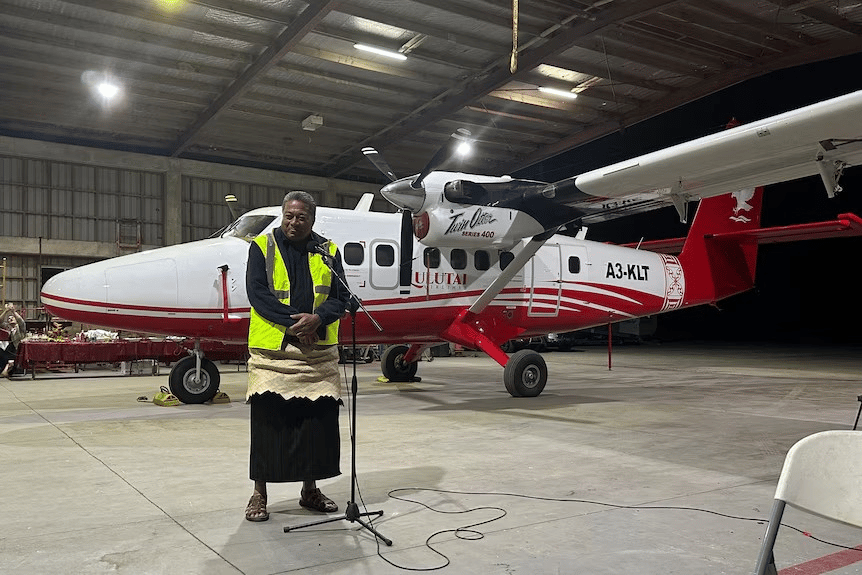
Tonga’s only airline, Lulutai, faces collapse by July. A $7 million bailout is being considered as the government scrambles to keep vital domestic air services alive. Photo credit: ABC News: Marian Kupu
🚨 Lulutai Airlines may be grounded for good. Can Tonga afford to lose its only domestic airline?
|
Tonga’s national carrier, Lulutai Airlines, is on the brink of collapse as mounting operational and financial challenges threaten its survival. Established in 2020 to replace the now-defunct Real Tonga Airlines, Lulutai has struggled to stay afloat, with mechanical issues, limited fleet capacity, and chronic underfunding undermining its operations.
|
|
The government recently revealed in Parliament that the airline could shut down by July 2025 unless it receives immediate financial intervention. Currently operating with just one aircraft, a Saab 340, Lulutai has grounded its smaller Y12 plane due to maintenance problems—further disrupting services to Tonga’s outer islands.
|
|
According to Tonga Independent, the airline requires a substantial bailout to remain operational. The situation has placed the government in a tough position as it weighs the prospect of injecting millions of dollars into a business that continues to lose money, while also balancing other national priorities.
|
|
A report by Islands Business notes that Lulutai has requested a TOP $16 million (approx. USD $7 million) subsidy to continue operations. This request comes as discussions unfold about potentially winding up the airline altogether. Meanwhile, a possible sale or partnership faces hurdles—Kaniva Tonga reports that some of Lulutai’s key assets were funded by Tonga’s retirement funds, complicating divestment or restructuring efforts.
|
|
Regional observers point out that reliable air travel is essential for Tonga, especially for emergency medical evacuations, inter-island commerce, and disaster response. The potential collapse of Lulutai would leave the country without a domestic carrier and significantly affect vulnerable outer island communities. As the clock ticks, the Tongan government is under growing pressure to act swiftly—either to save the airline or establish a viable alternative to ensure continued domestic air service.
|
Oxfam Apologizes to Vanuatu Government Amid Controversy Over Solar Tax Post
|
Oxfam, one of Vanuatu’s largest non-governmental organizations, has issued a formal apology to the Vanuatu Government following backlash over a Facebook post that questioned the government’s public consultation on a new solar tax bill. The social media post suggested that the government planned to impose a "sun tax" on solar power systems, sparking confusion and concern among the public.
|
Government Response and Potential Deregistration
|
Vanuatu’s Internal Affairs Minister, Andrew Napuat, criticized Oxfam for allegedly interfering in political matters and violating the terms of its registration. He indicated that the organization’s future operations in Vanuatu could be at risk, with the possibility of deregistration looming if the issues are not resolved.
|
|
Minister Napuat emphasized that the government had clarified there was no intention to impose a "sun tax" on solar energy systems, countering the claims made in Oxfam’s post. The controversy has highlighted tensions between government authorities and NGOs over the boundaries of advocacy and political involvement.
|
Oxfam’s Apology and Commitment
|
Over the weekend, Oxfam publicly apologized for the misleading post, acknowledging the confusion it caused and reaffirming its commitment to working collaboratively with the Vanuatu Government. The organization stressed its dedication to supporting sustainable development and renewable energy initiatives in the country.
|
|
Despite the apology, the situation remains delicate, with government officials closely monitoring Oxfam’s activities to ensure compliance with local laws and regulations governing NGOs.
|
Broader Context: Renewable Energy and Public Consultation in Vanuatu
|
Vanuatu has been actively promoting renewable energy sources, including solar power, as part of its strategy to address climate change and energy access challenges. The government’s efforts to introduce legislation related to solar energy aim to regulate the sector while encouraging sustainable growth.
|
|
Public consultations are a key part of the legislative process, designed to involve citizens and stakeholders in decision-making. However, misinformation or misunderstandings during these consultations can create friction between the government and civil society groups.
|
OCEANIAN MAKING WAVES

Cardinal Sir John Ribat of Papua New Guinea shares his profound experience participating in the historic papal conclave, reflecting his role as the first cardinal from the Pacific region. Photo Credit: Diocese of Wewak
Cardinal Ribat Shares First-Hand Account of Historic Papal Conclave
|
Cardinal Sir John Ribat of Papua New Guinea has offered a rare and personal glimpse into the secretive and ancient process of electing a new Pope, following his participation in the recent conclave at the Vatican’s Sistine Chapel. Speaking from Rome, Cardinal Ribat-one of only two Pacific representatives among the 133 cardinal electors-described the experience as “the event of a lifetime.”
|
A Meticulous and Sacred Process
|
Cardinal Ribat emphasized the gravity and intensity of the conclave, where cardinals are sequestered and sworn to secrecy as they fulfill one of the Catholic Church’s most solemn duties. No candidates are nominated or campaigned for; instead, every cardinal present is eligible to receive votes. Before voting begins, all electors take an oath to vote secretly, respectfully, and truthfully, with their hands on the Bible.
|
|
The process is strictly governed by centuries-old tradition and Vatican guidelines. Ribat recalled the comfort of being introduced to four “Patriarchs”-senior cardinals who help guide the proceedings-including Cardinal Pietro Parolin, Cardinal Luis Antonio Tagle, and Cardinal Robert Francis Prevost, the latter now elected as Pope Leo XIV.
|
A Dramatic Restart
|
The conclave’s meticulous nature was underscored when a voting error occurred: one cardinal accidentally submitted both a signed and a blank ballot. Upon discovering the blank ballot during the count, the entire vote was declared invalid, and the process had to be restarted from the beginning, including the recitation of the oath. Cardinal Ribat noted that this level of scrutiny ensures the integrity of the election, even if it adds to the exhaustion and tension of the event.
|
Unity, Prayer, and Divine Guidance
|
Unlike political elections, there is no lobbying or promotion of candidates. Instead, the cardinals rely on prayer and the guidance of the Holy Spirit, seeking unity and consensus for the good of the global Church. Ribat described the experience as spiritually profound, with the sense that “the will of God” was guiding their decision.
|
|
Despite the challenges, the conclave was completed swiftly, taking just two days and three rounds of voting (one of which was nullified due to the ballot error). The election of Pope Leo XIV was met with a sense of collective accomplishment and unity among the cardinals.
|
A Moment of Pride for Papua New Guinea
|
For Cardinal Ribat, participating in the conclave was not only a personal milestone but also a proud moment for Papua New Guinea and the Pacific region. He highlighted the significance of being part of the process that selects both the Archbishop of Rome and the Pope for the Universal Church, calling it “the greatest thing for me.”
|
|
Cardinal Ribat’s account offers a rare window into the conclave’s blend of tradition, faith, and global responsibility-an event that shapes the future of the Catholic Church and resonates with millions of believers worldwide.
|
SPORTS
Wrexham Set for “Wrexham Down Under” Tour with A-League Friendlies in Australia and New Zealand

With the club’s momentum building on and off the pitch, the “Wrexham Down Under” tour promises to be a highlight for fans in both hemispheres and a testament to the club’s ambitious vision under its celebrity owners. Photo Credit: Wrexham AFC - Instagram
|
Wrexham AFC, the Welsh football club owned by Hollywood actors Ryan Reynolds and Rob McElhenney, is gearing up for an exciting pre-season tour in Australia and New Zealand this July. Dubbed “Wrexham Down Under,” the club will face off against three prominent A-League teams: Melbourne Victory, Sydney FC, and Wellington Phoenix.
|
|
Wrexham’s upcoming tour follows a remarkable period of success for the club. Under manager Phil Parkinson, Wrexham recently secured promotion to the English Football League Championship, marking their third consecutive promotion in the top five tiers of English football-a feat that has captured international attention.
|
|
The club’s rise has been widely documented and celebrated, especially in Australia, through the popular docuseries Welcome to Wrexham, which chronicles the journey since Reynolds and McElhenney purchased the historic club in 2021. This tour continues their efforts to raise Wrexham’s global profile and strengthen international fan engagement.
|
SPOTLIGHT

Melbourne’s Star Wars Galactic Cafe opens this June, offering fans a taste of the galaxy far, far away alongside the spectacular Lego Star Wars exhibition. Photo credit: Concrete Playground
Melbourne to Host Australia’s First-Ever Star Wars Cafe, Complete with Blue Milk
|
Melbourne is about to become the ultimate destination for Star Wars fans and foodies alike, as the city prepares to launch Australia’s first-ever Star Wars-themed cafe. The Star Wars Galactic Cafe will open its doors at the Melbourne Museum on June 7, 2025, coinciding with the world-premiere of the highly anticipated Lego Star Wars: The Exhibition.
|
A Galactic Dining Experience
|
The Star Wars Galactic Cafe is more than just a place to grab a bite-it’s an immersive experience designed to transport visitors onto a Corellian Star Cruiser, blending world-class hospitality with the magic of the Star Wars universe. The cafe is a collaboration between Museums Victoria, Disney, and Lucasfilm, marking a first-of-its-kind pop-up in Australia.
|
|
While the full menu remains under wraps, one iconic item is confirmed: blue milk, a beloved beverage from the Star Wars saga. Fans can expect a range of other dishes inspired by the franchise, though it’s yet to be revealed if other galactic treats like green milk or interplanetary snacks will make the cut.
|
Part of a Larger Celebration
|
The opening of the cafe is timed perfectly with the launch of Lego Star Wars: The Exhibition, which began on May 4, 2025-an homage to the franchise’s famous “May the Fourth” celebration. The exhibition, created by renowned Lego artist Ryan McNaught (aka Brickman), features more than eight million Lego bricks assembled into life-sized recreations of iconic Star Wars scenes, ships, and characters. Highlights include the Millennium Falcon, Emperor Palpatine’s throne, and a dramatic face-off between Luke Skywalker and Darth Vader.
|
|
This exhibition is the largest collection of life-sized Lego Star Wars models ever assembled and the biggest touring Lego showcase to date, making Melbourne Museum a must-visit for fans of all ages.
|
A Premier Pop Culture Event
|
Museums Victoria CEO Lynley Crosswell describes the cafe as “a deliciously immersive, intergalactic journey,” promising visitors a unique way to engage with the Star Wars universe. The collaboration with Disney and Lucasfilm ensures that both the exhibition and the cafe deliver an authentic, high-quality experience.
|
Plan Your Visit
|
Star Wars Galactic Cafe opens June 7, 2025, at Melbourne Museum, 11 Nicholson Street, Carlton.
Lego Star Wars: The Exhibition runs from May 4, 2025, to January 26, 2026.
|
REGIONAL EVENTS
-
🫚 Pacific Week of Agriculture and Forestry (PWAF) 2025
Taking place on the 26th to 30th May 2025 in Nuku'alofa, Tonga, the
Ministry of Agriculture, Food and Forests of Tonga will host the Pacific Week of Agriculture and Forestry (PWAF) 2025
, a flagship regional event focused on advancing sustainable agriculture and forestry across the Pacific Islands.
PWAF 2025 aims to promote transformative, productive, regenerative, and resilient practices through knowledge sharing, innovation, and collaboration among Pacific nations. The event will feature expert discussions, workshops, and initiatives designed to support food security, environmental sustainability, and economic growth in the region. For more information, visit:
PWAF 2025.
|
-
SIDE EVENTS:
-
🌍 Promoting Safe Provision of Food and Other Humanitarian Aid in a Region Prone to Natural Disasters and Climate Extremes.
Register
-
🍐 Monitoring land degradation and deforestation: earth observations supporting countries with reporting for the UNCCD through the GEO-LDN initiative.
Register
-
🔬 Regenerating Pacific Agriculture and Forestry: The Role of Gene-banks in Enhancing Crop and Tree Agro-Biodiversity.
Register
|
TID BITS
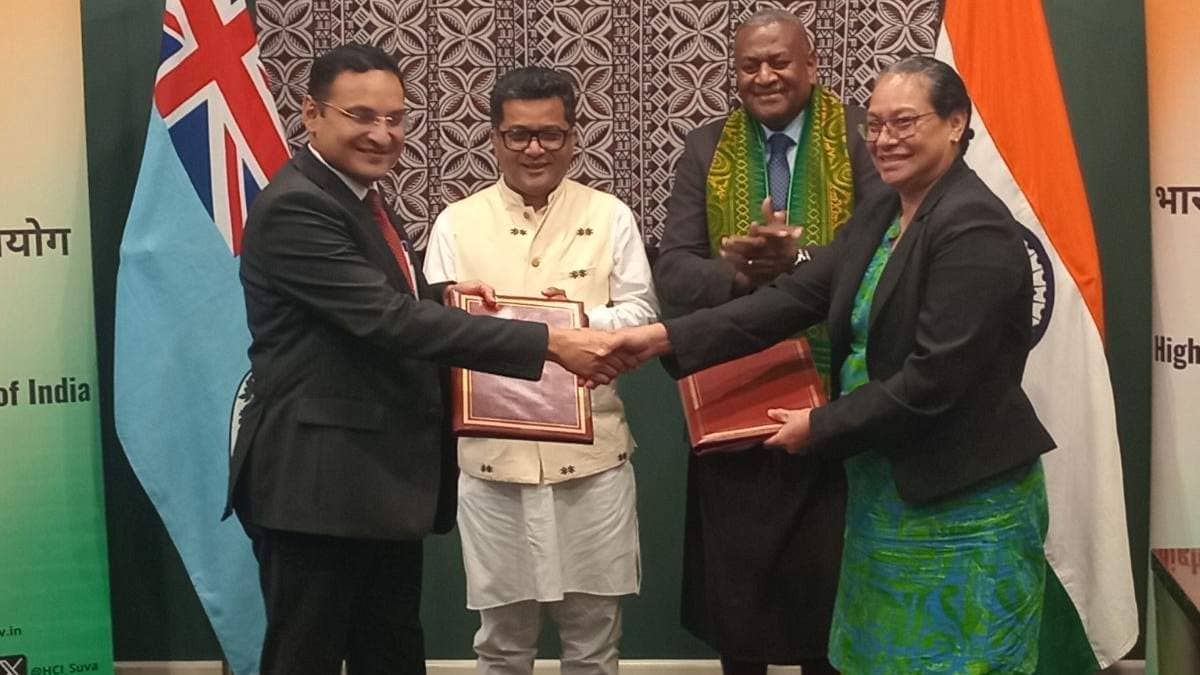
Fiji teams up with India to boost healthcare with direct medicine supplies and training. Photo Credit: Fiji Village
Fiji Signs Landmark Agreement with India to Secure Affordable Medicines and Strengthen Healthcare
Fiji has signed a Memorandum of Understanding with the Indian Government allowing it to directly source medicines and medical equipment from India, aiming to reduce costs and improve healthcare supply reliability.
|

Brave Hearts Vision seeks help with shipping costs to bring donated hospital beds and equipment from the USA to local hospitals. Photo credit: Brave Hearts (screengrab) - Facebook
Donated Hospital Beds Need Support to Reach Papua New Guinea
Brave Hearts Vision Inc, BGPNG’s foundation, has received donated hospital beds and equipment from the USA for Papua New Guinea’s public hospitals. They need help covering shipping costs to bring the items to Port Moresby. Those interested in supporting can contact Wesley Roy here.
|

A US naval projectile was successfully defused and removed during Nauru’s runway resurfacing project, ensuring safety for residents and airport operations. Photo credit: The Government of the Republic of Nauru - Facebook
Unexploded Ordnance Safely Removed from Nauru Airport Runway
On 10 May 2025, a dangerous unexploded US naval projectile was safely removed from Nauru Airport’s runway as part of a joint Nauru-Australia project to clear hazards and resurface the runway. Nearby residents were temporarily evacuated, and flights delayed during the operation, highlighting strong cooperation between the two countries.
|

Four sailors rescued and yacht towed to Suva by ADV Reliant during humanitarian mission. Photo credit: Joint Operations Command - Facebook
ADV Reliant Rescues Drifting Sailors Near Fiji
Australian Defence Vessel (ADV) Reliant rescued four sailors from the rudderless yacht Lucky Jonny while en route to Suva, Fiji. In coordination with the Republic of Fiji Military Forces Naval Division, Reliant safely towed the yacht back to Suva Harbour before completing its delivery of humanitarian supplies. The vessel, deployed extensively across the Pacific, supports search and rescue, disaster relief, and regional partnerships as part of Australia’s ongoing commitment to Pacific island nations.
|
QUICK TAKES
-
A worker at Port Nelson fell 12 metres into the sea when a guard rail broke. The port company was fined $110,000 and must pay $5,000 to the worker. A judge said the company wasn’t fully to blame but still played a key role.
-
Fiji is among twenty countries selected to engage in the Trump administration’s initial trade talks aimed at addressing the U.S. trade deficit, alongside major exporters like Japan, South Korea, and Vietnam, as well as smaller partners such as Lesotho and Mauritius.
-
Nine Entertainment has secured exclusive Australian broadcast rights to the upcoming Men’s and Women’s Rugby World Cups in a multi-tournament agreement with World Rugby. The deal covers the 2025 Women’s Rugby World Cup in England, the 2027 Men’s Rugby World Cup hosted in Australia, and the 2029 Women’s Rugby World Cup, also on Australian soil.
-
National Geographic's Pristine Seas project is conducting a historic, months-long expedition in Tuvalu’s waters, exploring largely unstudied deep seas, lagoons, and coral reefs. The team of scientists and filmmakers aims to assess reef health, document climate change impacts, and provide vital data to the Tuvalu Government to support ocean conservation and management efforts.
|
Was this email forwarded to you? Sign up here:
|
|
